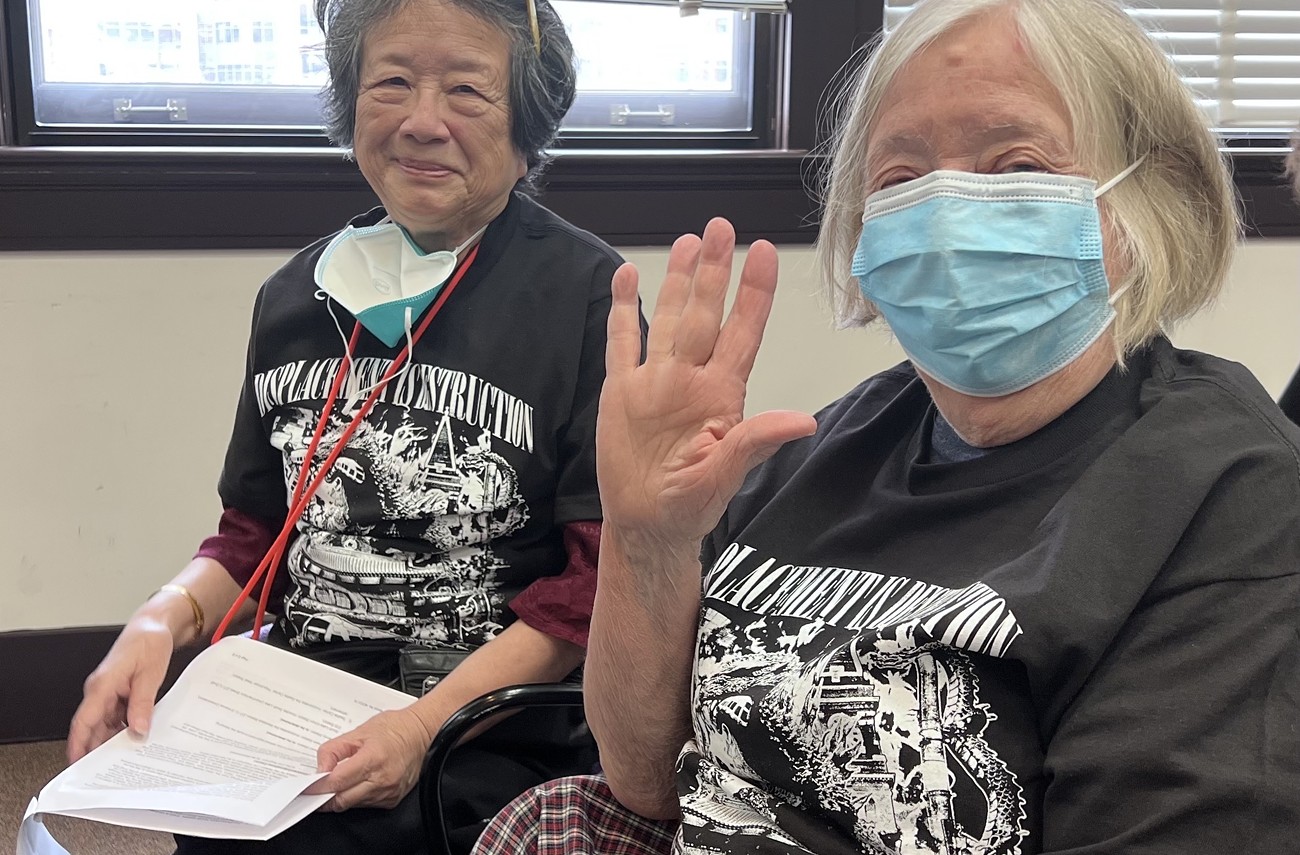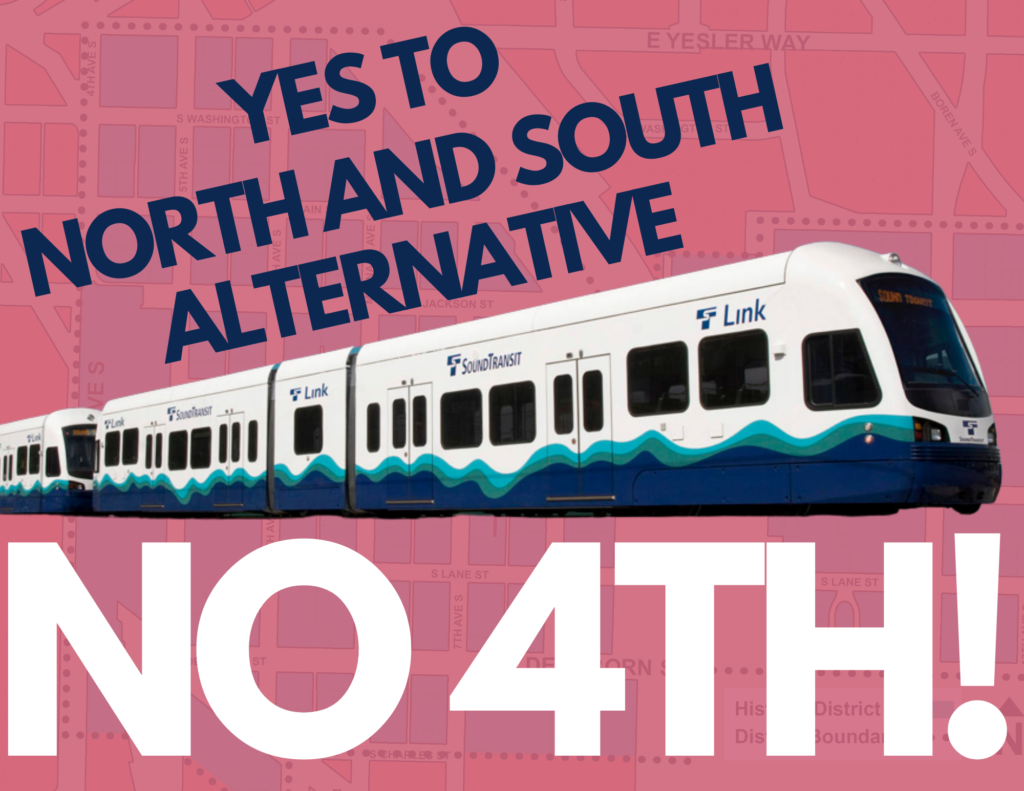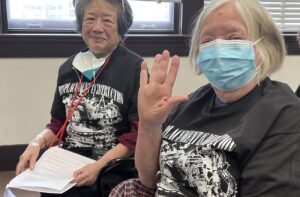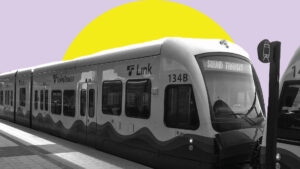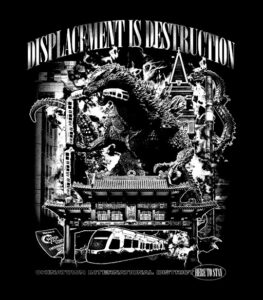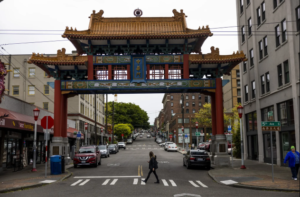WHAT: The Sound Transit board has approved the north and south stations for the West Seattle and Ballard Link Extensions (WSBLE) project that Coalition of CID partners have advocated for.
Chinatown International District, Seattle, King County –
After a long and difficult fight to choose a preferred alternative, the Chinatown International District (CID) Coalition, Puget Sound Sage and InterImCDA are celebrating a major victory for securing the future growth and development of the CID neighborhood to be equitable, affordable, and a sustainable place for immigrants and working-class communities of color to live and thrive for generations to come.
The coalition’s fight for a station location is rooted in the vision to maximize opportunity for equitable transit-oriented development, provide great transit options, stop the acceleration of gentrification, and for the survival of a community that has struggled for decades from racist policies and land grabbing encroachment. This decision is a critical step in acknowledging and repairing past harms.
“We extend our sincere appreciation to the Sound Transit board and staff, including Mayor Harrell, Executive Constantine and Council President Juarez for supporting north and south. We want to especially thank Councilmember Tammy Morales, for hearing our voices and concerns and being a vocal advocate against displacement and for inclusive transit-oriented development,” said Christina Shimizu, Executive Director of Puget Sound Sage. “We are grateful for their willingness to listen and recognize the importance of our long-standing history and the need for access to regionally connected transit, affordable housing, and opportunities for culturally relevant equitable transit-oriented development (eTOD) that do not accelerate gentrification pressures in the neighborhood.”
The CID Coalition, InterIm CDA, and Puget Sound Sage are committed to fighting speculative corporate development and displacement, and to ensuring that communities of color are centered in decision-making around transit and land use. “Good planning means something different for different communities,” Shimizu added. “A truly equitable and inclusive urbanism, and density done right, requires policymakers to listen to communities of color and trust that we know what is best for our neighborhoods.”
“InterIm CDA has been a community-based organization serving the needs of the CID for 53 years,” said InterIm CDA Executive Director Pradeepta Upadhyay. “We endorsed the north and south station locations option after weighing the significant impacts on the CID and its property owners, businesses, community organizations, and residents. Based on our values, we believe this is the best option for the community. We thank the Sound Transit board for making the right choice, and look forward to working with the community and Sound Transit to make these options the best they can be for the CID.”
While the CID Coalition, Puget Sound Sage and InterIm CDA are celebrating this victory, they are also aware that their work is not done. The coalition plans to stay engaged and organized to ensure that the community benefits the most from the station: pedestrian improvements for walking and rolling, lighting, and wayfinding among other community benefits and mitigation connected to the light rail line as well as righting past harms. They will also advocate for a platform to connect Sounder to the South of CID station, expanded greenspace and protections for City Hall Park, and access to culturally relevant, community based eTOD to provide much-needed affordable housing for the neighborhood.
“This win is only one step to repairing the harm and distrust in our communities, and the destruction that previous infrastructure projects have wrought on the CID,” said Monyee Chau of the CID Coalition. “The copious amount of labor that organizers have put in to protect our neighborhood is a testament to how deeply we all care for this community, and I have so much gratitude for everyone who helped us fight for this win. May we continue to make these conversations more accessible and inclusive of all the people that they affect, and move forward with collaboration and a commitment to ensuring that the Chinatown International District community remains a vibrant and thriving part of Seattle.”
About the CID Coalition:
The Chinatown International District Coalition is a grassroots, multiracial, multiethnic and multigenerational organization that works to promote social, economic, and environmental justice for low-income communities of color in the CID and Greater Seattle. They fight against displacement, gentrification, and the erasure of community history and culture.
About Puget Sound Sage:
Puget Sound Sage charts a path to a living economy in the South Salish Sea and Duwamish River Valley (greater Seattle) regions by developing community power to influence, lead, and govern. We ground our policies in grassroots organizing & community-based research with people directly impacted by systems of oppression and organizations serving BIPOC workers, their families and communities. Through the power of grassroots organizing, policy and advocacy strategies, and leveraging the influence of coalitions centering impacted communities, we have organized for and passed some of our region’s most exciting policies that promote climate justice, good jobs and equitable development in low-wage and people of color communities. Our campaigns and theory of change are rooted in intersectional economic & racial justice, which for us means organizing historically disenfranchised people and bringing them together to build power as a vehicle for social change.
About InterIm CDA:
InterIm CDA was created in 1969 and is a nonprofit affordable housing and community development organization based in Seattle’s Chinatown/International District (CID). Since 1969 InterIm CDA (ICDA) provides multilingual, culturally competent housing and community building services to those disenfranchised due to lack of English, low acculturation and poverty. Though historically ICDA’s focus was on the API community living in the CID, they currently serve about 5,000 unduplicated low-income limited English-speaking individuals from Asia, Africa and America throughout the greater Puget Sound.

